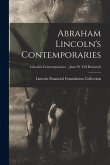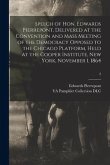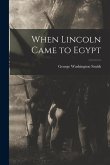"When Democracy Fell" is a comprehensive exploration of Maryland's constitutional crisis during the U.S. Civil War. This groundbreaking work challenges long-held views and fills crucial gaps in historical narratives, uncovering previously overlooked events and information.
Hinweis: Dieser Artikel kann nur an eine deutsche Lieferadresse ausgeliefert werden.
Hinweis: Dieser Artikel kann nur an eine deutsche Lieferadresse ausgeliefert werden.





![An Oration in Memory of General Montgomery; and of the Officers and Soldiers, who Fell With Him, December 31, 1775, Before Quebec [microform] An Oration in Memory of General Montgomery; and of the Officers and Soldiers, who Fell With Him, December 31, 1775, Before Quebec [microform]](https://bilder.buecher.de/produkte/66/66195/66195112m.jpg)


